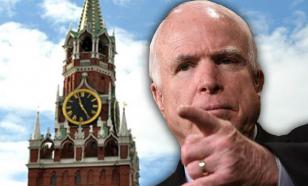Kosovo, EU leaders hold talks
As diplomatic activity grows aimed to resolve the future of Kosovo, Albanian leaders of the province held talks with the European Union's foreign policy chief Javier Solana.
The talks come as Western nations are trying to hammer out a compromise U.N. resolution on Kosovo that would give ethnic Albanians and Serbs four months to reach agreement on the province's future status. But unlike previous drafts, it would not automatically trigger a route to independence if negotiations fail, U.N. diplomats said.
Serbia strongly objects to a U.S.-backed plan to give Kosovo limited independence. Russia, Serbia's ally in the Security Council, has implied it would veto any such measure.
Although Kosovo officially remains a province of Serbia, it has been under U.N. and NATO administration since a NATO-led air war halted a Serb crackdown on ethnic Albanian separatists in 1999.
New diplomatic attempts to resolve the impasse followed talks July 1-2 between U.S. President George W. Bush and his Russian counterpart, Vladimir Putin, in Maine.
Solana's meeting with Kosovo's President Fatmir Sejdiu and Prime Minister Agim Ceku come on the heels of his talks with Serbian President Boris Tadic and U.N. Secretary-General Ban Ki-moon.
Sejdiu and Ceku are expected to press the Europeans to back the independence cause.
The European Union is supposed to deploy a mission to Kosovo to replace the current U.N. administration there. But the Europeans have made it clear they will not do so until the U.N. Security Council adopts a resolution clearly mandating the transfer of authority.
The draft resolution currently at the United Nations - calling for four months of talks - would address Russia's major objections. But it would almost certainly anger Kosovo's ethnic Albanians, who comprise 90 percent of the province's 2 million population and who have been clamoring for a quick move to independence.
Still, Serbia has objected to the latest document saying no new Security Council resolution or a set timeframe for the talks was needed to restart the negotiations. It wants to stick to a U.N. resolution passed in 1999 which states that Kosovo is formally a part of Serbia.
Subscribe to Pravda.Ru Telegram channel, Facebook, RSS!




